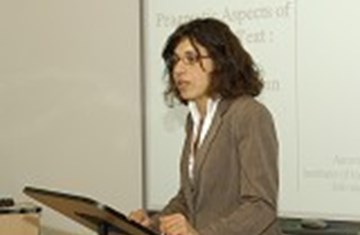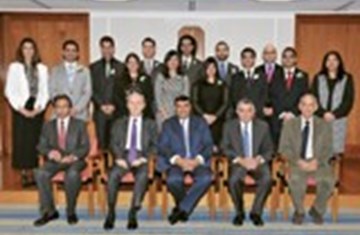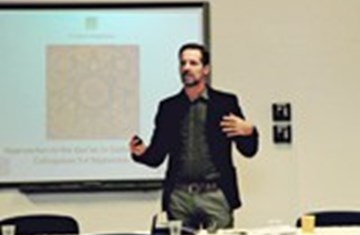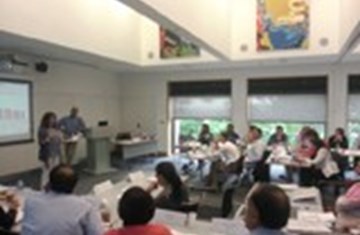Launch of The Ikhwan al-Safa’ and their Rasa’il
The editor of the text, Dr Nader El-Bizri, a Research Associate and Coordinator of the project at the IIS, presented the key ideas discussed in this introductory volume by leading philosophers, historians and scholars of Islamic studies. Many of these contributors are also editors and translators of the first Arabic critical editions and complete English translations of the Rasa'il Ikhwan al-Safa’, which is planned to be published as a 16-volume series entitled The Epistles of the Brethren of Purity.
The Ikhwan al-Safa’ or Brethren of Purity were a group of Muslim thinkers based in Basra, Iraq, who, in the 10th century, thought seriously about the key issues of the time in a political and historical context. Consequently, they produced an encyclopaedic work of 52 epistles which treated themes in mathematics, logic, natural philosophy, psychology, metaphysics and theology, in addition to moral and didactic fables. Though the identity of the Ikhwan al-Safa’ remains a mystery, it is apparent that their agenda was primarily intellectual. Their contributions to science and philosophy were immense for their time.
In Mombasa, Dr El-Bizri was joined by Professor Azim Nanji, Senior Associate Director of the Abbasi Programme in Islamic Studies at Stanford University and former Director of the IIS. Professor Nanji highlighted that one of the key goals of the IIS is to conduct research at the highest academic level and that projects such as this enable a greater demographic to access the works of the Ikhwan al-Safa’ as well as other Muslim thinkers of past civilisations. Both scholars discussed the rationale behind the groundbreaking project of translating and publishing the 52 epistles or Rasa’il of the Ikhwan al-Safa’.
The next volume in the Epistles of the Brethren of Purity series, Epistle 22: The Case of the Animals versus Man, is due for publication by The Institute of Ismaili Studies, in association with Oxford University Press, in 2010.






